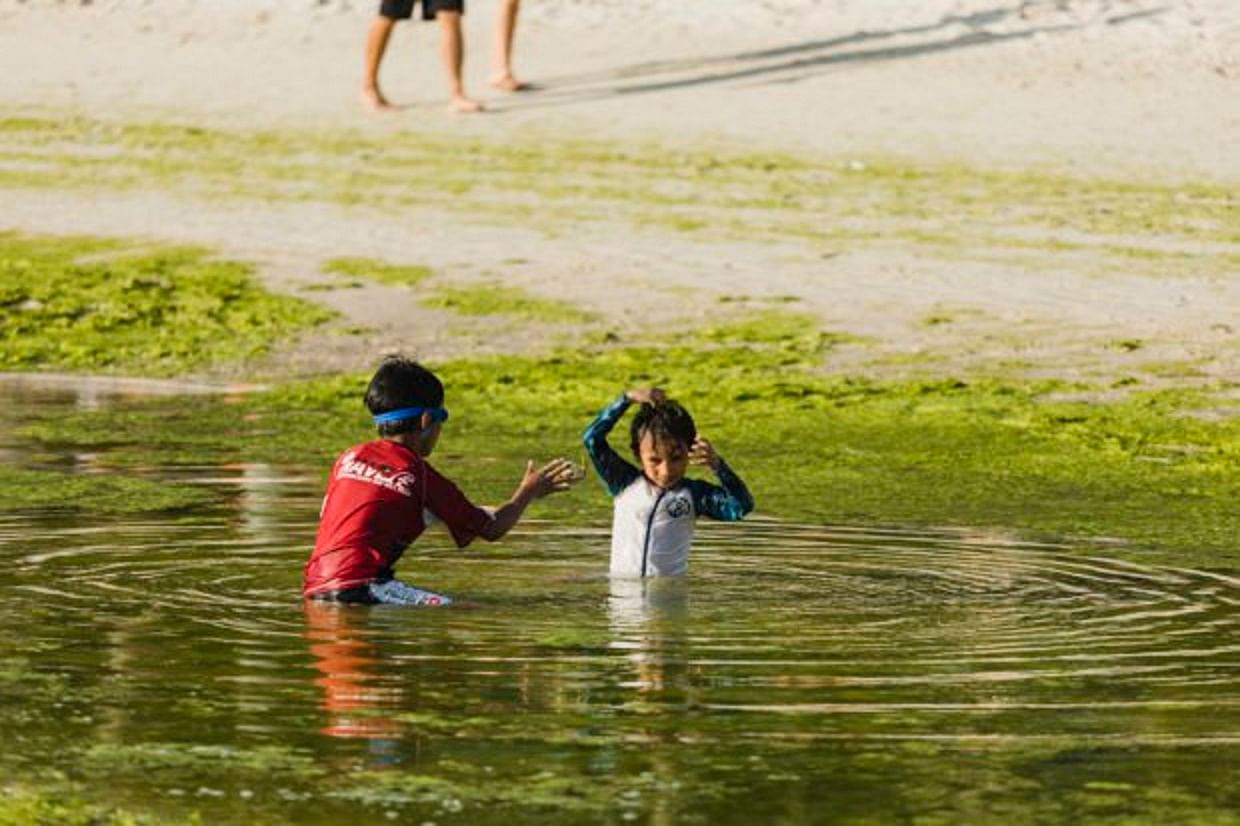ILOILO CITY (THE PHILIPPINE DAILY INQUIRER/ ASIA NEWS NETWORK) - Fifty-one establishments operating on the Philippine resort island of Boracay are facing closure after being found to have no wastewater treatment facilities and dumping sewage into the sea, according to the Department of Environment and Natural Resources.
The move against the establishments came days after President Rodrigo Duterte directed the environment department to clean up Boracay, comparing it to a "cesspool", threatening to shut down the world-famous island in six months if the sewage and garbage problems remained unsolved.
The 51 establishments were served notices, dated Tuesday (Feb 13), for violating the Clean Water Act, the environment department said in a report to the central office in Quezon City.
Under the law, establishments and households are mandated to dispose of their septic waste through a treatment facility.
In a statement on Tuesday, Environment Secretary Roy Cimatu said that while 50 to 60 per cent of all establishments in Boracay appeared to be compliant with the requirement, "all the rest direct their pipes to the canals, which drain to the sea."
Cimatu said the notices of violations would be issued to establishments that were illegally connected or not connected at all to the sewage treatment plant at Boracay island. "We will give these establishments three to five days to respond. Otherwise, we will cut their water connections," he said.
Climatu said the erring establishments - which were not identified - would be given two months to either connect to the sewage treatment plant or install their own wastewater treatment facilities. "Otherwise, we will close them," he said.
One high-end hotel catering mostly to Chinese and Korean tourists on the island said it saw cancellations for bookings this week following Duterte's remarks. Hotels and resorts on the island had expected full bookings in time for the celebration of the Chinese New Year on Friday (Feb 16).

Most hotels and resort operators said they expected queries from prospective guests on the status of the island following the President's controversial pronouncements.
Duterte had decried the island's environmental situation in a speech in Davao City last Friday, saying: "I will close Boracay. Boracay is a cesspool. "There will be a time that no more foreigners will go there because … when he goes back to the plane, he will be full of s*** going back and forth to the restroom," he said.
WATER QUALITY ACCEPTABLE
The environment department, however, has assured tourists that the water quality in Boracay was within acceptable standards, especially for swimming and water sports activities.
A report from the environment department's Environmental Management Bureau in Western Visayas showed that water quality in bathing areas in Boracay was safe for swimming and water sports. The areas are along the white beach on the western side of the island.
Average fecal coliform concentration was 8.0 most probable number (MPN)/100 millilitres (ml), the annual water quality sampling in 2017 showed.
This was within the acceptable concentration of 100 MPN/100 ml for areas categorised for swimming and 200 MPN/100 ml for areas for non-contact activities, such as docking and boating, according to the report seen by the Inquirer.
It said water quality had improved over the past several years from the 101.2 MPN/100 ml in 2012.
The concentration of fecal coliform bacteria in bodies of water indicates the level of contamination of domestic sewage and human and animal waste. Levels above tolerable standards may lead to illnesses on contact with water or through ingestion.

The department's reports were based on monthly sampling and analysis from 15 stations on the island, including eight in bathing areas. The samples are taken 100 metres from the shoreline.
"The waters are safe for swimming but we need to address the serious problems," said Jim Sampulna, environment regional director.
Business groups on the island have welcomed the deadline to solve the problems but were against the closing down of the island, which provides thousands of jobs in hotels, resorts, restaurants and construction firms.
"Closure of the island is not the solution to the problems that have long been existing. What we need is less reaction but more action through strong leadership, stringent implementation of laws, and solid and organized plans based on scientific studies and research," the Philippine Chamber of Commerce and Industry's Boracay branch said in a statement.
The group, which is composed of about 50 companies, said what was important was for all sectors to act collectively to address the problems.

